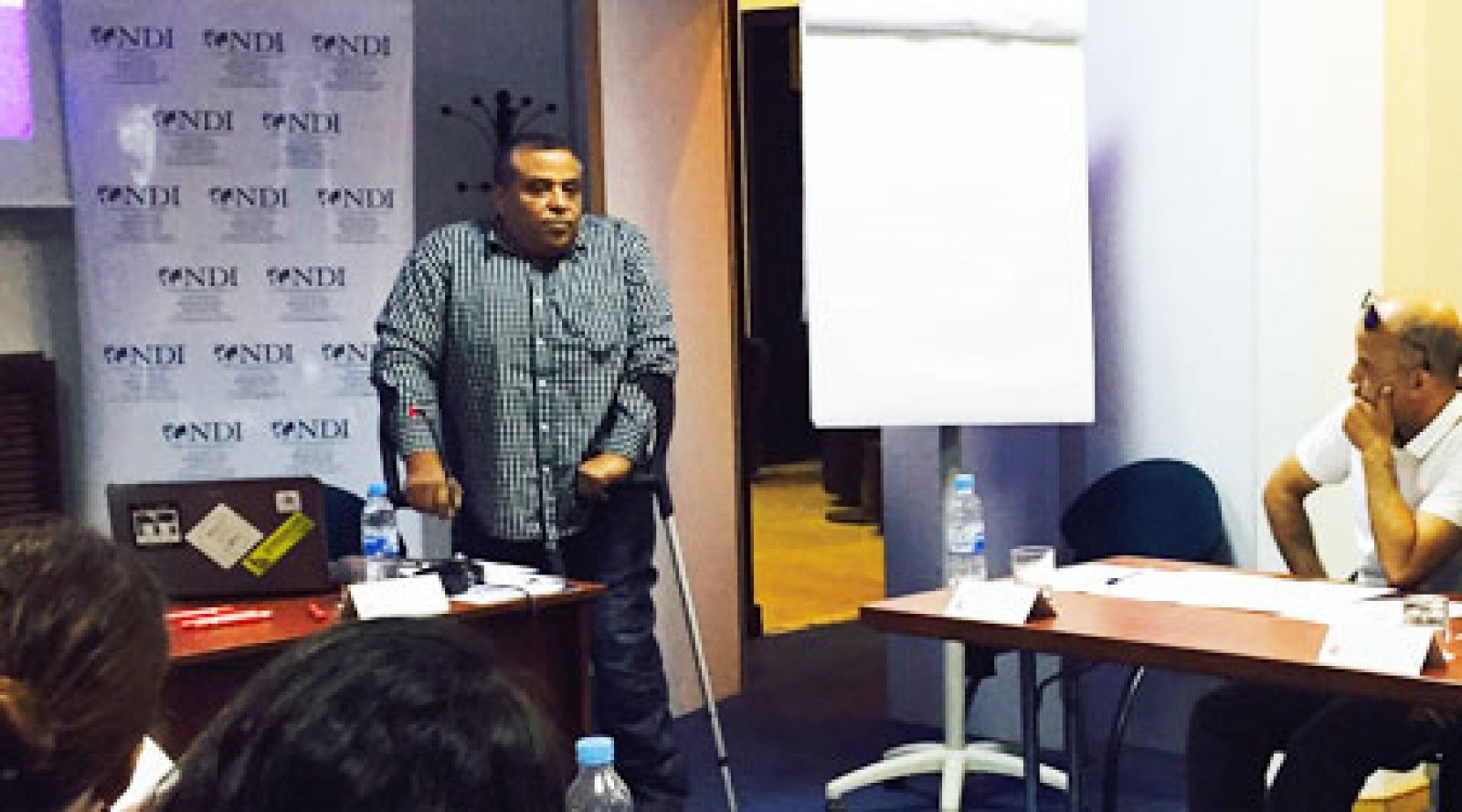
SHARE
Morocco has made a number of positive steps recently to protect the rights of people with disabilities, but significant barriers still exist that limit the equal participation of these citizens in the country’s political processes.
According to a 2004 study conducted by the Moroccan Secretariat for Family, Children and Disabled Persons, more than 1,530,000 individuals, or 5.12 percent of Morocco’s population, have some type of disability. The study also found that one in four families is directly or indirectly affected by disability issues and has an active interest in protecting the rights of people with disabilities.
Despite making up a sizeable portion of the population, people with disabilities are at risk of being denied basic political rights, such as the right to vote, due to factors that include social stigma, discriminatory legal frameworks and lack of accessible public infrastructure.
Through recent reforms, the Moroccan government has shown commitment to ensuring the political and social inclusion of persons with disabilities. Morocco ratified the United Nations Convention on the Rights of Persons with Disabilities in 2009, and the revised constitution, which was adopted in 2011, specifically protects the equal rights of persons with disabilities. In addition, Morocco’s election code now requires polling station staff to provide necessary assistance to persons with disabilities to enable them to vote.
Despite these reforms, there are still a number of areas where people with disabilities remain excluded. During the 2011 parliamentary elections, most polling stations were not properly equipped to allow access for persons with disabilities, and most persons with disabilities were not aware that polling staff are required to provide any assistance necessary to ensure their ability to vote. Political parties have also been slow to adopt inclusive policies and practices to engage this important block of voters.
The Collective for the Rights of Persons with Disabilities (CPD) has partnered with NDI to advocate for greater political inclusion of people with disabilities, with a particular focus on the electoral process. Through its work with political parties, CPD is helping formulate policy recommendations to address the needs of persons with disabilities and incorporate their priority issues into party platforms for Morocco’s 2016 legislative elections.
CPD has also strengthened its efforts to improve participation in elections by assessing barriers faced by persons with disabilities on election day. During the September 2015 local elections, CPD conducted a statistically rigorous audit of polling station accessibility. The pilot project included 43 CPD observers, who audited 200 of the 4,566 polling stations in the Rabat/Sale/Kenitra region. During the project, which was conducted with the assistance of NDI, CPD used a sample-based methodology, an international standard for election observation that allows for efficient collection of data from representative sample of polling stations. Transportation issues limited the ability of observers to reach 6 of the 206 polling stations in the sample, but did not impact the reliability of the study’s results.
During the pilot project, trained mobile observers were equipped with an audit form that was developed with NDI assistance, which included eight questions measuring two indicators of polling center accessibility. The indicators were designed to measure ease of access, such as ramps for wheelchairs, and the extent to which the voting booths and ballot boxes were easy to use for people with disabilities. Observers reported their findings to the data collection and communication center.
The audit revealed that fewer than 25 percent of the polling stations observed were accessible to people with disabilities and that less than 50 percent of the voting booths and ballot boxes were designed at a proper height to enable people using wheelchairs to be able to vote without assistance. Building on their findings, CPD developed a series of recommendations to improve voter accessibility before the 2016 legislative elections, which it presented at a press conference on September 15. The press conference was covered by several local and national news agencies, including Hespress, Lakome and Kafapresse. CPD also published a video on youtube to raise awareness of accessibility issues for persons with disabilities ahead of the elections.
Over the next year, the CPD plans to share its recommendations with the Ministry of Interior, Morocco’s electoral management body, and to support the ministry’s development of an implementation plan. CPD will also continue to support the efforts of political parties to better engage with and address the needs of persons with disabilities.
NDI will hold a debrief session with CPD this fall to discuss lessons learned from the pilot audit and prepare plans to conduct a national audit during next year’s legislative elections. These findings will provide a wider set of data on accessibility across the country and reveal if progress has been made between election periods.
Published on October 7, 2015


